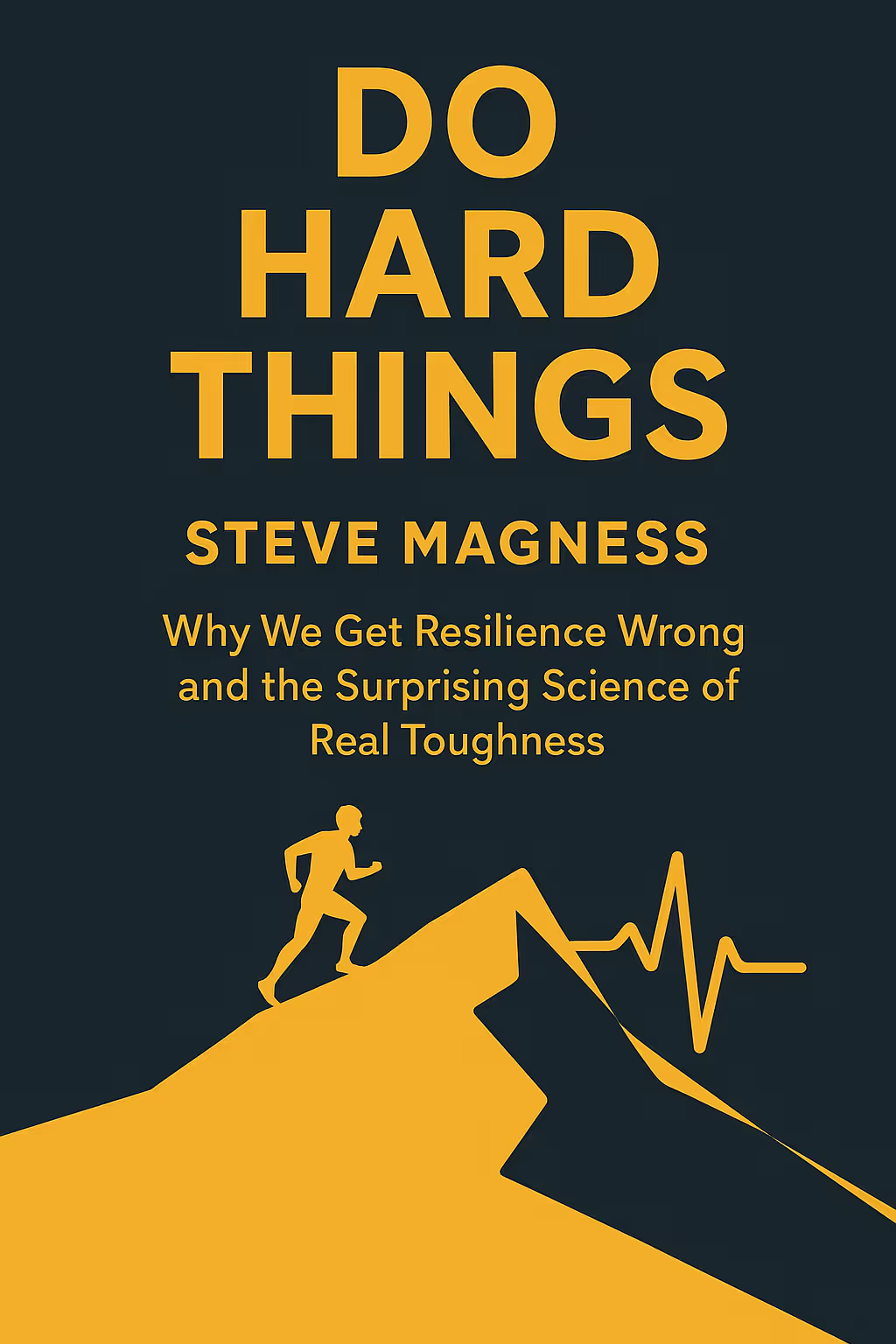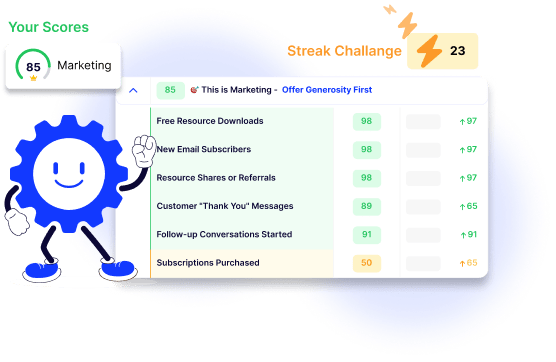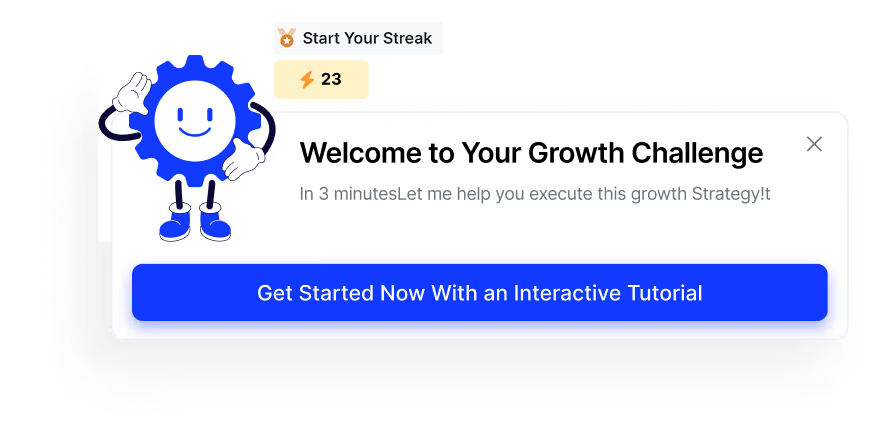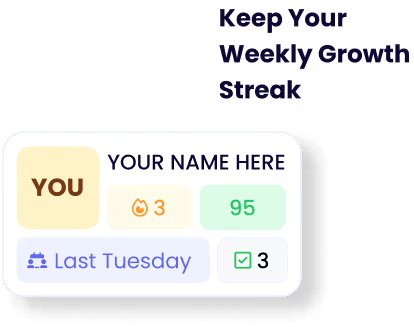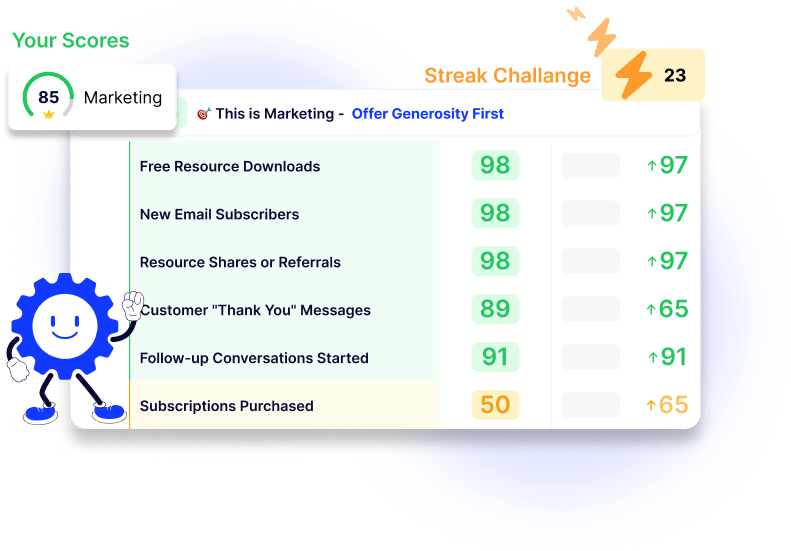See How We Gamify this Strategy for You!
{
"strategicObjective": "Elevate decision success rate to 75% within 90 days by logging 80+ daily body-sensation entries to unlock resilient high performance.",
"scorecardName": "Body Signal Mastery",
"scorecardShortName": "Signal Mastery",
"scorecardKeyId": "body_signal_mastery",
"scorecardGuideMd": "### Strategy Summary\nHarness interoception to convert body cues into performance data and smarter decisions.\n\n### Goal→Work→Proof Flow\nDaily sensation logs and re-label sessions (Work) build a rich dataset that lowers stress and cuts recovery time (Proof), driving a 75% Decision Success Rate (Goal).\n\n### Weekly Execution Plan\nMon: Review last week’s Decision Success Rate.\nTue–Fri: Log sensations after each key task; re-label anxiety→excitement 5×/day.\nWed: Run AI pattern report; adjust triggers.\nFri: Team stand-up—share insights, plan next experiments.\n\n### Success Indicators & Pivots\nIf logs ≥ target but stress score stagnant, refine re-label script. If recovery drops but decisions lag, tighten decision rubric timing.\n\n### Key Success Factor\nConsistency in high-quality sensation logging drives all downstream gains.",
"frequency": "Weekly",
"metrics": [
{
"metricKeyId": "performance-decision-success-rate",
"metricName": "Decision Success Rate",
"metricDescription": "Percentage of key business decisions judged successful (meets intended outcome) based on weekly post-mortems. Core indicator of translating body signals into better performance.",
"okrType": "Goal (Objective)",
"guideMd": "Track % of decisions rated ‘successful’ in Notion DB ▸ Decisions. Formula: successful/total ×100. Update each Fri; if <60%, review sensation tags pre-decision.",
"metricValue": {
"type": "AVG",
"dataType": "Percentage",
"value": 50
},
"metricGoal": {
"goalType": "Increase KPI",
"goal": 75
}
},
{
"metricKeyId": "interoception-daily-log-count",
"metricName": "Daily Sensation Logs",
"metricDescription": "Count of unique body-sensation entries captured in the logging app. More logs create training data for pattern detection and build awareness.",
"okrType": "Work (Key Action)",
"guideMd": "Log at least 1 sensation per work hour in ‘Body Log’ mobile app. Zapier export ▸ Sheets for weekly count. Review Mon; set reminders if <20/week.",
"metricValue": {
"type": "Count",
"dataType": "Numeric",
"value": 0
},
"metricGoal": {
"goalType": "Fixed Amount",
"goal": 80
}
},
{
"metricKeyId": "mindset-relabel-sessions",
"metricName": "Re-label Sessions Completed",
"metricDescription": "Instances of consciously re-framing negative arousal (e.g., anxiety→excitement). Builds adaptive stress response that supports performance.",
"okrType": "Work (Key Action)",
"guideMd": "Mark a ✓ in Slack #relabel each time you shift state. Zapier tally daily; aim 1+/day. Review Wed; run breathing drill if pace drops.",
"metricValue": {
"type": "Count",
"dataType": "Numeric",
"value": 0
},
"metricGoal": {
"goalType": "Fixed Amount",
"goal": 60
}
},
{
"metricKeyId": "stress-perceived-score",
"metricName": "Average Perceived Stress Score",
"metricDescription": "Self-reported stress on 1-10 scale captured nightly. Lower scores confirm effective regulation of arousal through body signal mastery.",
"okrType": "Proof (Key Result)",
"guideMd": "Enter nightly score in Google Form. Data Studio dashboard auto-avg weekly. If >5, schedule additional mindfulness block.",
"metricValue": {
"type": "AVG",
"dataType": "Numeric",
"value": 7
},
"metricGoal": {
"goalType": "Decrease KPI",
"goal": 4
}
},
{
"metricKeyId": "recovery-time-hours",
"metricName": "Avg Recovery Time After Stress (hrs)",
"metricDescription": "Hours required to return to baseline HRV after a documented high-stress event, measured via wearable API. Faster recovery shows resilience gains.",
"okrType": "Proof (Key Result)",
"guideMd": "Pull HRV delta from Whoop ▸ Export. Calculate hours to baseline in Sheets weekly; if >18 hrs, add active recovery session.",
"metricValue": {
"type": "AVG",
"dataType": "Numeric",
"value": 24
},
"metricGoal": {
"goalType": "Decrease KPI",
"goal": 12
}
}
]
}
